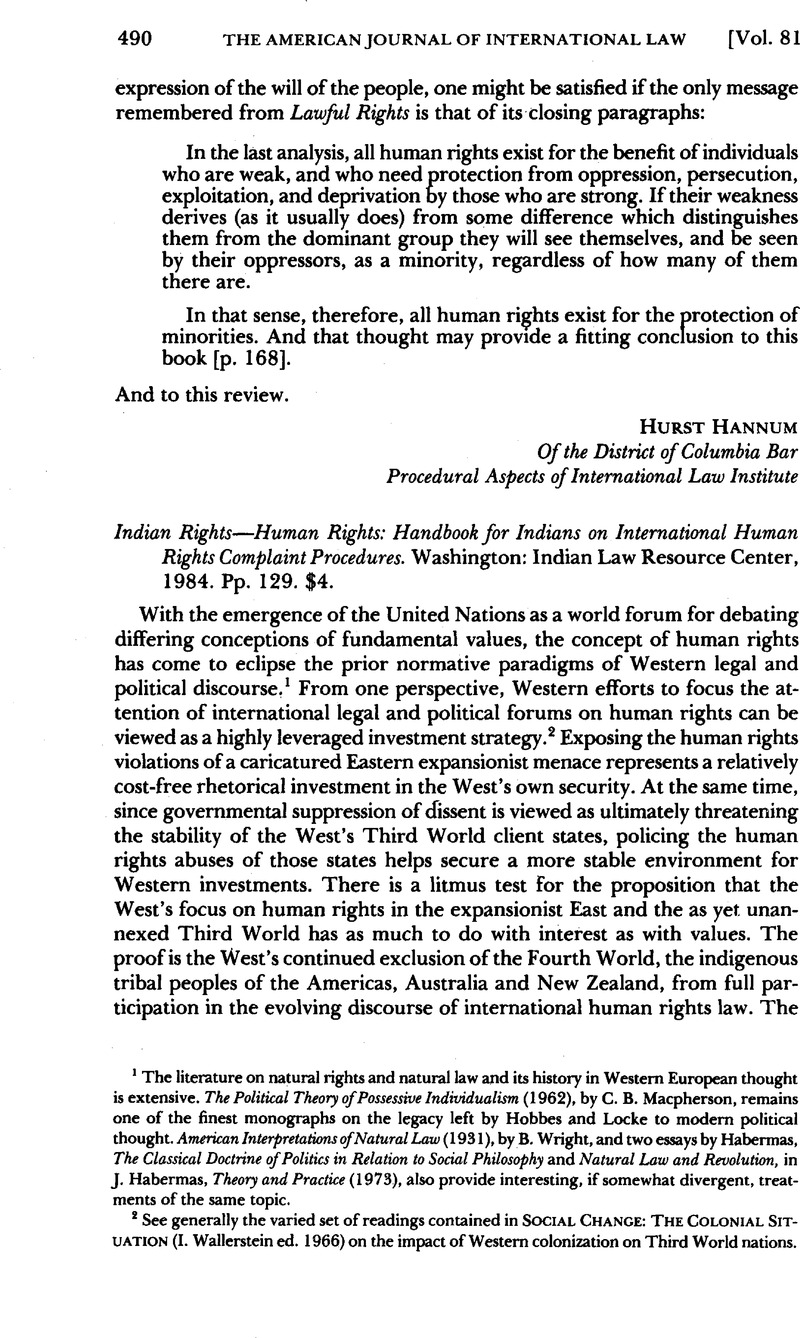No CrossRef data available.
Published online by Cambridge University Press: 27 February 2017

1 The literature on natural rights and natural law and its history in Western European thought is extensive. The Political Theory of Possessive Individualism (1962), by C. B. Macpherson, remains one of the finest monographs on the legacy left by Hobbes and Locke to modern political thought. American Interpretations of Natural Law (1931), by B. Wright, and two essays by Habermas, The Classical Doctrine of Politics in Relation to Social Philosophy and Natural Law and Revolution, in Habermas, J., Theory and Practice (1973)Google Scholar, also provide interesting, if somewhat divergent, treatments of the same topic.
2 See generally the varied set of readings contained in Social Change: The Colonial Situation (Wallerstein, I. ed. 1966)Google Scholar on the impact of Western colonization on Third World nations.
3 See generally Barsh, , Indigenous North America and Contemporary International Law 62 Or. L. Rev. 73 (1983)Google Scholar.
4 Johnson & Graham’s Lessee v. Mcintosh, 21 U.S. (8 Wheat.) 543, 573–74 (1823). On the doctrine and its influence in European legal theory and discourse respecting indigenous peoples and their rights, see generally Henderson, , Unravelling the Riddle of Aboriginal Title 5 Am. Indian L. Rev. 75, 87–105 (1977)Google Scholar. See also Barsh, R. & Henderson, J., The Road: Indian Tribes and Political Liberty 49 (1980)Google Scholar.
5 Barsh, supra note 3, at 97.
6 See GA Res. 1541, 15 UN GAOR Supp. (No. 16) at 29, UN Doc. A/4684 (1960). See generally Barsh, supra note 3, at 84–87; G. Bennett, Aboriginal Rights in International Law 12–13 (1978); and Andress & Falkowski, Self-Determinatiim: Indians and the United Nations—The Anomalous Status of America’s Domestic Dependent Nations, 8 Am. Indian L. Rev. 97, 109– 14(1980).
7 Lovelace v. Canada, Communication No. R.6/24 (announced July 30, 1981). See 36 UN GAOR Supp. (No. 40), Ann. XVIII, UN Doc. A/36/40 (1981).